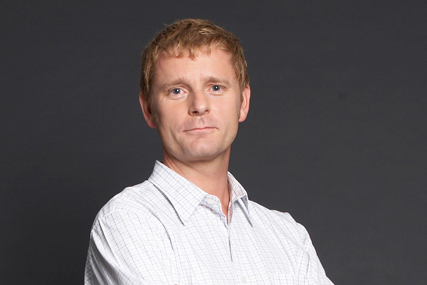Sixty years ago, the consumer society did not exist.
Mortgages were something for which you had to butter up the bank manager, getting a telephone meant you had to join a long waiting list, and if you wanted to watch the telly, you had the choice of one channel.
Now, one of the most popular categories of self-help book is 'declutter your life', with dozens of titles on Amazon, from Detox your Desk to Living a Richer Life with Less Stuff.
We have become a society in which people have so many possessions, they need help throwing them away; a society in which Big Yellow storage exists to box up all the things we do not need but cannot discard.
Nowhere has this extraordinary explosion of supply been felt more keenly than in the TV sector. We now have hundreds of digital channels via satellite, cable and Freeview, with thousands more available online.
In case there is nothing on worth watching, we can catch up on iPlayer or SeeSaw, watch individual programmes on YouTube or Hulu, or use our digital video recorder to view a series we set it to record months ago.
I have written here before about consumer choice theory, particularly about Kahnemann's work, which shows how an increase in available options can make it harder for consumers to make a positive decision about a product. He has also demonstrated that, in the absence of such an active choice, they fall back on bias and default to guide choice. The papers on this formed the basis of thinking about behavioural economics, and its effect is being felt now in the world of TV.
Thinkbox will be relieved to hear that every now and then I have an evening in and do not feel like doing anything. In these situations, I will spool through the DVR's list of recorded programmes looking for something worth spending time with. For the past two years the critically acclaimed series The Wire has occupied a huge chunk of the hard disk.
The show won plaudits internationally, and has been a must-watch for the chattering classes for the past three years. I have just never got around to watching it and reached a point where the commitment required to make a start on the series was just too great.
As Decipher managing director Nigel Walley puts it: 'Who, faced with the prospect of a whole season recorded, hasn't just watched the last half of Top Gear and a bit of QI?'
The DVR obligingly soaks up entire series I don't have time to watch, then presents them to me like a school-holiday reading list. I know I should get into them, but watching a series starts to feel like work, not relaxation.
We all know people who proudly announce they have spent the whole weekend locked in with a box set of DVDs of 24 or Mad Men. They have been jamming up their sideboard for ages and now, like a course of colonic irrigation, they have cleared the blockage. They feel liberated. Lighter. They have got it out of the way, and now they can watercool with the best on how irritating Chloe is.
However, the pressure of the all-you-can-eat buffet of TV means there is more than I can feasibly leave on the side of my plate. So I have started getting rid of stuff without watching it.
It is a buzz. Now, I've started deleting entire series without ever starting them.
So valete The Wire. Goodbye Doctor Who. I have decluttered my media life.
However, while on one hand my viewing has decoupled itself from the constraints of schedules and channels, at times all this active consumption is a bit much. In these situations I adopt a decision avoidance strategy.
That is what Dave's for.
Andrew Walmsley is co-founder of i-level.
30 SECONDS ON ... The Wire
- The Wire is a crime drama set in the US city of Baltimore. The first season premiered in June 2002 and the final episode of season five was shown in March 2008.
- While the show has not attracted big mainstream audiences or won any major awards, many critics have acclaimed it as one of the best TV series ever made.
- Much of the praise has focused on how The Wire flouts the conventions of cop shows and most other TV dramas. Its portrayal of US city life is unflinchingly realistic, it has a huge cast of characters, and storylines that arc over multiple episodes or series.
- The action is predominantly centred on a group of dedicated, if flawed, members of the Baltimore Police Department and their struggles with drug dealers, corrupt union officials and official bureaucracy.
- Some of the shows most sympathetic and compelling characters live on the wrong side of the law, notably Omar, an openly gay armed robber, who targets drug dealers, and Bubbles, a drug addict and police informer.


